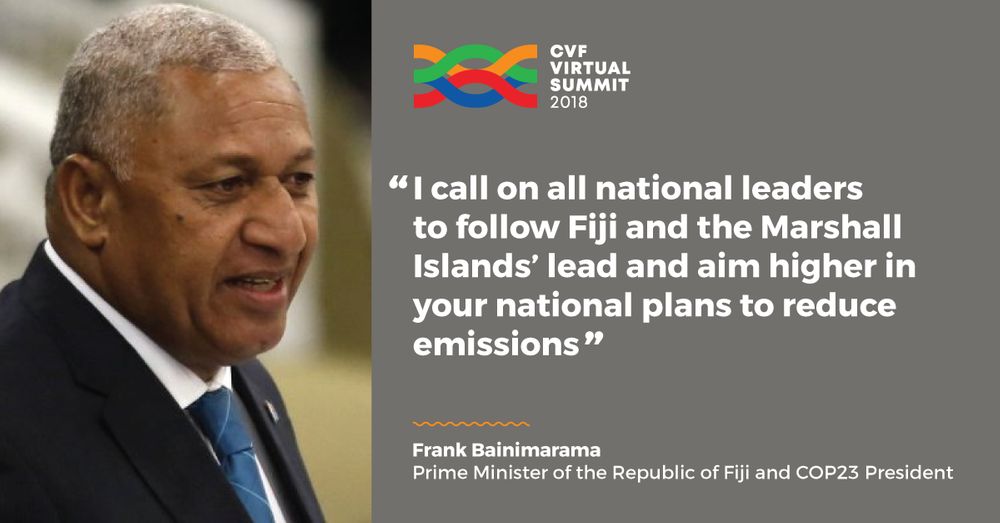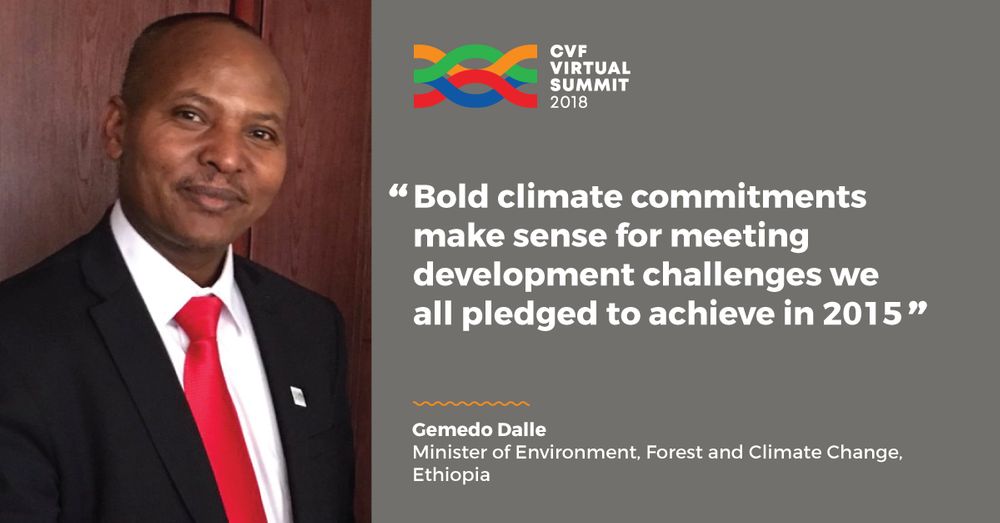
At the end of last week, countries from all over the globe convened online in an unprecedented Virtual Climate Summit hosted by the Marshall Islands, leaders of the Climate Vulnerable Forum (CVF). The aim of the Summit—which aligned with the general mission of the CVF—was to raise awareness of the extent to which a couple degrees of global warming can devastate low-altitude and otherwise at-risk nations.
This “couple of degrees”—2 degrees Celsius—is not an arbitrary number, but rather the maximum net global warming (vis-à-vis preindustrial levels) permissible under the Paris Agreement of 2015. Participants in the Climate Vulnerable Forum stressed that even this 2-degree benchmark is not ambitious enough, and that any warming beyond 1.5 degrees will have deadly sea level and coral bleaching ramifications for low-lying and ocean-dependent communities.
The Virtual Climate Summit communicated these ideas through emotional documentaries, poems and call-to-action videos, live panel discussions and head of state video messages. And in addition to highlighting disproportionately affected nations, the Summit called attention to disproportionately affected strata of society, with a special focus on women and their tendency to bear the brunt of global warming effects.
The Summit was not a pessimistic event but rather a realistic one, laying out the direness of the current situation and proactively offering solutions moving forward. The Marshall Islands set the tone of the Summit by stepping up and announcing concrete plans to raise climate ambition, declaring a commitment to 100% renewable energy and zero net emissions by 2050. Fiji joined the Marshall Islands by announcing an enhanced country climate action plan by next year and the Summit welcomed similar pledges from other endangered nations looking to set a sterling example for the rest of the world.

The official outcome of the Summit, particularly the “Jumemmej Declaration” will feed into the agreed mechanism to promote enhanced action by all nations party to the Paris Agreement dubbed the “Talanoa Dialogue” and sends a powerful call to arms to all leaders and non-state actors to enhance ambition by 2020. During the Summit Vanuatu also announced they may be seeking legal action against fossil fuel companies, taking the climate battle to the courts.
This event was the perfect way to set the stage for the 24th Conference of the Parties to the United Nations Framework Convention on Climate Change (COP24), which commences this week in Katowice, Poland and will continue through mid-December. COP24 is bringing together delegations to reassess the demands of global warming and to ramp up support for climate action in light of the IPCC Global Warming of 1.5 °C report, which emphasizes that current country climate action commitments are not enough. Building on the spirit of the Talanoa Dialogues, which personalized climate action through emotional story-telling and strive to raise ambition, COP24 aims to unpack a “Just Transition” for industries and economies by changing together.
The Virtual Climate Summit was an impactful reminder that even 2 degrees can be deadly, and yet the latest data suggest humanity is well on its way to 3 degrees of warming by the end of this century. COP24 will be an opportunity to take to heart the concerns laid out by the Vulnerable Climate Forum last week and redouble international commitments to the goals of the Paris Agreement.

With global carbon emissions at an all-time high in 2017 according to the WMO, leaders on climate agree that it’s now or never if we as a global community need to step up to have a shot at preventing global catastrophe. The IPCC tells us we have 12 years to make the global transition, decarbonize economies by 45% by 2030 from 2010 level, while also ensuring those most affected develop resilience to increasing climate impacts. Fortunately, it’s not all bad news. Entrepreneurs and investors in the private sector have shown an eagerness to contribute to the sustainable development sphere, and pricing carbon is seeing wider and wider adoption rates, while subsidies for fossil fuels are being removed.
The message of COP24 is not that we’re doing nothing right, but rather—in line with the arguments of the Virtual Climate Summit—that we need to seize on what we are doing right and do much more of it in the years to come. This will require novel strategies, a renewed sense of urgency, and wide-ranging teamwork, all of which are attainable if we keep our eyes on a brighter future.
Connect4Climate will be at COP24 from 3-14 December. Follow the daily Facebook live broadcasts from the Joint MDB Pavilion and look out for our call-to-action videos. Join the discussion, we are stepping up climate action.
Banner and thumbnail photo credits to the Climate Vulnerable Forum



